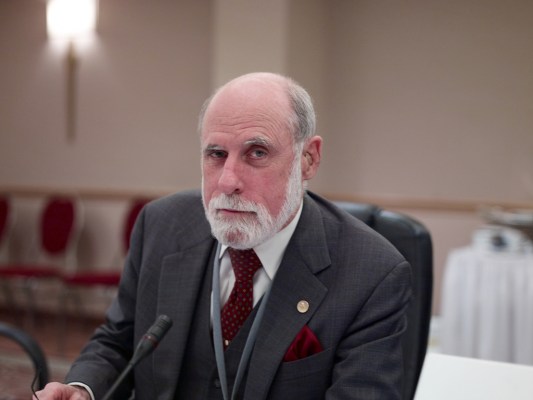One of the original architects of the Internet wants to remind us that privacy is a relatively new concept. “Privacy is something which has emerged out of the urban boom coming from the industrial revolution,” said Google’s Chief Internet Evangelist and a lead engineer on the Army’s early 1970’s Internet prototype, ARPANET. As a result, ‘privacy may actually be an anomaly,” he told a gathering of the Federal Trade Commission.
Looking back at history, Cerf is mostly right.
Up until the 19th century, most houses had few or no internal walls. Bathing was a public act. For most of the post-Roman era, the very concept of “solitude” was limited to clergy, who dedicated their lives to private worship. “Intercourse, birth, death, just about every aspect of the life cycle plays out with some sort of audience,” architectural historian Bernard Herman explained to me.
An expert in early American housing, Herman found that the average home was about 16×10 ft with multiple families living under one roof. Indeed, the invention of the “Bed Chamber” really doesn’t become popular among the European wealthy until around the 1600s. The few Medieval aristocrats who could afford a bed still used to sleep with house guests and servants on extra large mattresses.
In Rome, bathrooms were public; evidence suggests people chatted while relieving themselves in open multi-toilet rooms. Indeed, in Rome, even for those who could afford to build houses with internal walls, still chose to put their private lives on display. Ostentatious displays of one’s wealth to the world with an open house was a status symbol.
There may have been once exeption to this rule: excavations of ancient greek houses reveal architecture with partitioned rooms and windows that obscured views inside the home [PDF]. But, for the most part, privacy didn’t really exist in ancient cities.
Perhaps the real concern is with information privacy? Well, that’s new too. The “right to privacy” was not coined until 1890, by future Chief Justice Louis Brandeis. The right to privacy would not be recognized by the Supreme Court until the landmark 1967 case, Katz v. The United States.
In some ways, informational privacy isn’t a concern until the modern age, because few people had the technology or knowhow to write anything down. Still, privacy regulations did not catch up with literacy until the mid 19th Century. For instance, while there were scattered concerns with the very first census in 1790, the results were still posted publicly so that citizens could double-check their accuracy [PDF].
“So I’m not saying that we shouldn’t be interested in privacy, but I am suggesting to you that it’s an accident, in some respect, of the urban revolution,” concludes Cerf.
Now, our liberty-loving readers could argue that the invention of privacy is just a natural evolution of social advancement, like democracy or medicine. “Civilization is the progress toward a society of privacy,” said libertarian heroine, Ayn Rand.
Cerf’s comments have gotten pickup due to increased scrutiny of Google’s ad targeting policies and Glass project. Governments around the world want to rein in Google’s ambitious mission to organize the world’s information.
Regardless of the law, Cerf’s point was that transparency “is something we’re gonna have to live through.” It’s quite difficult to find technological solutions to privacy. Savvy data scientists are getting increasingly clever at identifying individuals from anonymous datasets. Even if an individual chooses to keep information private, its getting easier to ID someone’s tastes, gender, and sexual orientation from the public activity of their share-happy friends.
The more sustainable solution maybe to rekindle the social norms we had around tolerance. Like Cerf, I lived in a small town (in Brazil); knowing everything about everyone else isn’t the end of the world. In some ways, it’s beneficial. We often suffer alone unnecessarily.
Perhaps, there is something in our history that can help us adapt to a life that is, once again, radically transparent.
